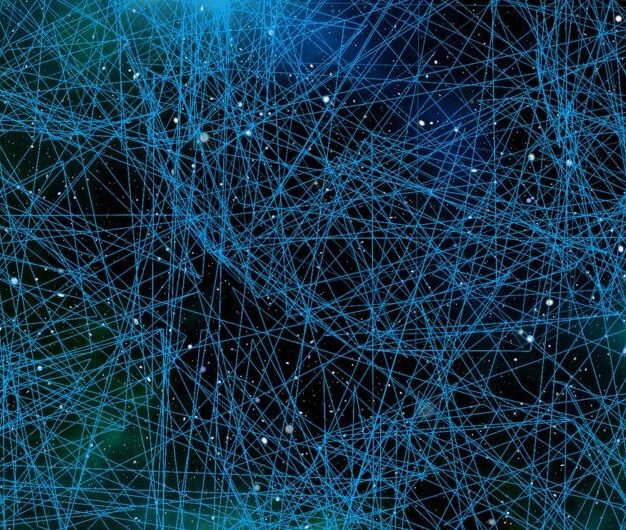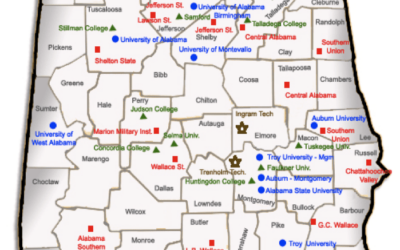Navigating the Intersection of Physical and Neurodevelopmental Differences

What is EDS with Autism and ADHD?
Ehlers-Danlos Syndrome (EDS) is a group of connective tissue disorders that can co-occur with neurodevelopmental conditions like Autism Spectrum Disorder (ASD) and Attention Deficit Hyperactivity Disorder (ADHD). Recent research suggests a higher prevalence of autism and ADHD in individuals with EDS compared to the general population. When someone has EDS along with autism and/or ADHD, we refer to this unique profile as EDS-Neurodivergent.
The Diagnostic Evolution of EDS-Neurodivergent
Historically, the physical symptoms of EDS were often considered separately from neurodevelopmental conditions like autism and ADHD. Recent advancements in understanding the mind-body connection have led to more integrated approaches, recognizing the potential interplay between connective tissue disorders and neurodevelopmental differences.
The Complexity of EDS-Neurodivergent
EDS affects the body’s connective tissues, leading to symptoms like joint hypermobility, skin elasticity, and chronic pain. When combined with the sensory processing differences in autism and the attention regulation challenges in ADHD, it creates a complex interplay of physical and neurological experiences.
The Push-Pull of Overlapping Symptoms
Living with EDS-Neurodivergent often involves navigating multiple challenges:
- Physical pain and fatigue from EDS can exacerbate sensory sensitivities in autism
- ADHD-related impulsivity might increase the risk of injuries in those with joint hypermobility
- Executive function difficulties common in autism and ADHD can complicate management of EDS symptoms
These overlapping traits can result in:
- Increased difficulty in daily functioning due to both physical and neurodevelopmental challenges
- Sensory overload from both internal (pain, proprioception issues) and external stimuli
- Challenges in accessing appropriate healthcare that addresses all aspects of the condition
Gender and Presentation Differences
EDS-Neurodivergent can manifest differently across individuals:
- EDS is more commonly diagnosed in women, while autism and ADHD are often underdiagnosed in this group
- The physical symptoms of EDS may mask or complicate the recognition of neurodevelopmental differences
- Pain tolerance and expression can vary, influenced by both physical and neurodevelopmental factors
Rethinking Treatment for EDS-Neurodivergent
Managing EDS-Neurodivergent requires a holistic approach that addresses both physical and neurodevelopmental aspects. Innovative treatments showing promise include:
- Somatic Experiencing (SE): This body-oriented approach can be particularly beneficial for individuals with EDS-Neurodivergent. SE techniques can help develop better body awareness and pain management strategies while also addressing the nervous system dysregulation common in autism and ADHD.
- Adaptive Physical Therapy: Combining traditional physical therapy with neurodiversity-affirming practices can help manage EDS symptoms while accommodating the sensory and attention needs of autistic and ADHD individuals.
- Mindfulness-Based Pain Management: Adapted mindfulness practices can help individuals with EDS-Neurodivergent develop greater awareness of their physical states and emotional responses to pain, while also supporting attention regulation.
- qEEG Brain Mapping: This non-invasive assessment tool can provide valuable insights into the specific brain activity patterns of individuals with EDS-Neurodivergent. The resulting data can guide personalized treatment plans, potentially including neurofeedback interventions to address pain perception, sensory processing, and attention regulation.
These approaches, combined with traditional interventions for EDS, autism, and ADHD, can provide a comprehensive treatment plan for EDS-Neurodivergent individuals.
The Strengths of an EDS-Neurodivergent Profile
While challenging, this combination of conditions can also confer unique strengths:
- Heightened body awareness that can aid in early detection of health changes
- Increased empathy and understanding for others with invisible disabilities
- Creative problem-solving skills developed from navigating a world not designed for their needs
- Resilience and adaptability cultivated through managing complex health needs
Embracing the EDS-Neurodivergent Experience
Understanding EDS-Neurodivergent as a distinct profile is crucial for proper support and self-acceptance. It requires appreciating the complex interplay between physical symptoms and neurodevelopmental traits, rather than viewing them as separate issues.
For those living with EDS-Neurodivergent, developing personalized management strategies is key. This might involve:
- Creating an environment that supports both physical comfort and sensory needs
- Developing a pain management plan that takes into account neurodivergent traits
- Advocating for comprehensive healthcare that addresses all aspects of their condition
- Connecting with others who share similar experiences for support and validation
With the right combination of medical support, therapeutic interventions, and self-management strategies, individuals with EDS-Neurodivergent can lead fulfilling lives that honor the complexity of their physical and neurological makeup.
If you relate to the experiences described in this article, consider seeking an assessment from a multidisciplinary team experienced in EDS, autism, and ADHD. Remember that your experiences are valid, and support is available to help you navigate this unique health profile.
Resources to ADHD Comorbid with Other Disorders
Taproot Therapy Collective (Birmingham, AL)
- Treatments: Brainspotting, EMDR, Somatic Experiencing, Lifespan Integration, Parts-Based Therapy, Trauma Mapping.
- Specialties: Specializes in trauma therapy, PTSD, anxiety, panic, and dissociative disorders. Their therapists use integrative methods to help clients heal from trauma at a deep, somatic level.
- Website: gettherapybirmingham.com
1. Crisis Center Birmingham (24/7 Crisis Line)
- Phone: (205) 323-7777
Provides immediate support for individuals in emotional distress, including suicide prevention, trauma, and mental health crises. - Website: crisiscenterbham.org
2. Rape Response Line (Crisis Center Birmingham)
- Phone: (205) 323-7273
Dedicated to providing support for survivors of sexual assault, available 24/7. - Website: crisiscenterbham.org/rape-response
3. Teen Link (Crisis Center Birmingham)
- Phone: (205) 328-5465
Teen-specific support line for youth in emotional or mental distress. - Website: crisiscenterbham.org
4. National Suicide Prevention Lifeline (Serving Alabama)
- Phone: 988
A national 24/7 suicide prevention hotline accessible to individuals in Birmingham and the rest of Alabama. - Website: 988lifeline.org
5. UAB Psychiatry Emergency Services
- Phone: (205) 934-7008
Provides immediate psychiatric evaluation and crisis intervention at the University of Alabama at Birmingham Hospital. - Website: uabmedicine.org
6. Alabama Domestic Violence Hotline
- Phone: 1-800-650-6522
24/7 support for individuals experiencing domestic violence, available statewide, including Birmingham. - Website: acadv.org
7. Birmingham AIDS Outreach Crisis Line
- Phone: (205) 322-4197
Provides crisis support for individuals affected by HIV/AIDS, including mental health services and support for LGBTQ+ communities. - Website: birminghamaidsoutreach.org
8. Alabama 2-1-1 Call Center
- Phone: 2-1-1
A statewide information and referral line connecting individuals to crisis support services for housing, food, mental health, and substance abuse issues. - Website: 211connectsalabama.org
9. Jefferson County Family Resource Center Crisis Line
- Phone: (205) 945-6000
Provides crisis intervention, including family support, domestic violence resources, and mental health services. - Website: jcfrc.org
10. Veterans Crisis Line (Serving Birmingham)
- Phone: 988 (Press 1)
A specialized crisis line for veterans experiencing emotional distress, available nationwide and locally. - Website: veteranscrisisline.net
- Phone: (205) 323-7777
LGBTQ+ and Poly-Friendly Support
Magic City Acceptance Center (MCAC)
LGBTQ+ youth programs, adult support groups, and community events in Birmingham.
Website: mcacbham.org
Birmingham LGBTQ+ Circle of Healing
Support groups for LGBTQ+ individuals focusing on mental health and holistic wellness.
Contact through Magic City Acceptance Center.
Inclusive Therapists
Directory of therapists in Birmingham and Hoover specializing in LGBTQ+ and poly-friendly care.
Website: inclusivetherapists.com
PFLAG Birmingham
LGBTQ+ support groups for families and friends of LGBTQ+ individuals, offering mental health and advocacy resources.
Website: pflaga.org/birmingham
Steel City Spectrum
Provides support and resources for the transgender and gender-nonconforming communities in Birmingham.
Website: steelcityspectrum.org
Free & Low-Cost Therapy and Counseling
Impact Family Counseling (Birmingham, AL)
Provides sliding-scale counseling services for trauma, anxiety, depression, and family therapy.
Website: impactal.org
Firehouse Shelter (Birmingham, AL)
Offers mental health services and crisis support for homeless individuals in the Birmingham area.
Website: firehouseshelter.com
Pathways Birmingham
Women’s shelter offering mental health and trauma support for homeless women and children.
Website: pathwayshome.org
United Way of Central Alabama
Offers access to free or low-cost mental health counseling and crisis intervention through partnerships.
Website: uwca.org
BridgeWays Alabama
Offers family and youth counseling, including trauma recovery, on a sliding fee scale.
Website: bridgewaysalabama.org
Holistic & Alternative Therapy Centers
Taproot Therapy Collective (Birmingham, AL)
Offers holistic mental health services like Brainspotting, EMDR, and somatic trauma therapies.
Website: gettherapybirmingham.com
Birmingham Wellness Institute
Focuses on alternative healing practices such as yoga therapy, mindfulness, and EMDR.
Website: bhamwellness.com
Sojourn Counseling (Hoover, AL)
Provides integrative counseling with a focus on EMDR, trauma work, and mindfulness.
Website: sojourncounseling.com
Red Mountain Therapeutics (Birmingham, AL)
Offers somatic therapies, acupuncture, and integrative emotional healing for trauma recovery.
Website: redmountaintherapeutics.com
Shanti Healing Arts Center (Birmingham, AL)
Focuses on trauma-sensitive yoga, meditation, and holistic therapies for emotional and mental health.
Website: shantihealingarts.com
Lifespan Integration & Trauma Mapping
Birmingham Counseling Associates
Provides Lifespan Integration therapy for complex trauma and PTSD.
Website: bhamcounseling.com
Lifeline Counseling (Hoover, AL)
Trauma-informed care specializing in Lifespan Integration and Somatic Trauma Mapping.
Website: lifelinehoover.com
River Oaks Counseling
Offers Lifespan Integration and other trauma-focused therapies for PTSD and dissociation.
Website: riveroakscounseling.com
Emotional Wellness Counseling
Provides Lifespan Integration therapy and somatic trauma work.
Website: emotionalwellnesshoover.com
qEEG Brainmapping and Neurofeedback Resources
Focus-MD Birmingham
Specializes in ADHD treatment and qEEG brain mapping for neurodevelopmental disorders.
Website: focus-md.com
Birmingham Neurofeedback Clinic
Provides qEEG brain mapping and neurofeedback for trauma, anxiety, and ADHD.
Website: birminghamneurofeedback.com
Alabama Neurofeedback
Offers qEEG brain mapping and neurofeedback to improve brain function and emotional regulation.
Website: alneurofeedback.com
Covenant Neuropsychology
qEEG brain mapping services for trauma-related symptoms and neurological issues.
Website: covenantneuro.com
Psych Wellness South (Hoover, AL)
qEEG and neurofeedback services to treat anxiety, ADHD, and trauma.
Website: psychwellnesssouth.com
Poly-Friendly & Non-Monogamy Support
Inclusive Therapists
Directory for poly-friendly and non-monogamy affirming therapists in the Birmingham and Hoover areas.
Website: inclusivetherapists.com
Birmingham LGBTQ Circle of Healing
Offers support for polyamorous and non-monogamous relationships.
Contact through Magic City Acceptance Center.
Alabama Polyamory Network
A supportive community providing mental health resources for polyamorous individuals.
Contact via Meetup: meetup.com/polybirmingham
New Hope Counseling
Poly-friendly therapy services, offering support for non-traditional relationships.
Website: newhopecounselingbham.com
Open Counseling Birmingham
Provides mental health counseling for those in polyamorous or open relationships.
Website: opencounseling.com
Youth & Family Services
Oasis Counseling for Women and Children
Provides trauma therapy, parenting support, and family counseling.
Website: oasiscounseling.org
Children’s Aid Society of Alabama (Birmingham)
Family and individual counseling, including trauma services for children.
Website: childrensaid.org
Aletheia House
Mental health and substance abuse services for families, including trauma recovery programs.
Website: aletheiahouse.org
Big Brothers Big Sisters of Greater Birmingham
Offers mentorship and emotional support for at-risk youth.
Website: bbbsbhm.org
The Exceptional Foundation
Provides support for children and adults with special needs, including mental health resources.
Website: exceptionalfoundation.org













0 Comments